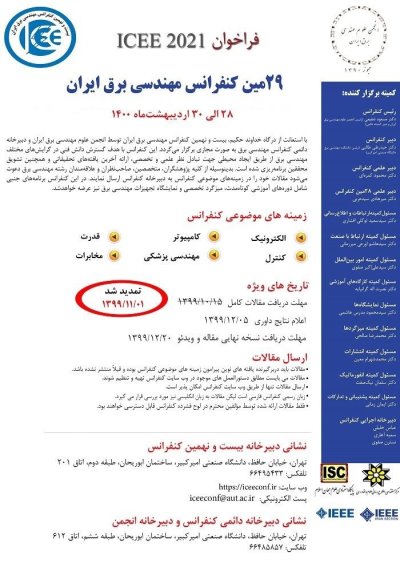0% Complete

نویسندگان :
کلمات کلیدی :
چکیده :
لیست مقالات بایگانی شده
Negin Shafinezhad - Maryam Mahmoudi - Hamid Abrishami - Vahid Baghishani
محمد گنج خانی - علی عباسپورطهرانی فرد - سجاد فتاحیان دهکردی - محمد غلامی
Sayna Jamaati - Seyed Abolfazl Hosseini - Mohammad Ghorbanzadeh - Hossein Arabi
Hamid Mohsennezhad - Mohammadrasoul Kankashvar - Hossein Bolandi
Erfan Asadi - Hamid Khoshkhoo - Ali Parizad
علی یاوری - حسن کاتوزیان - سارا قلی نژاد شفق
Zahra Ghasemzadeh - Mehdi Saberi
Abolfazl Saadati Moghadam - Ehsan Ranjbar - Amir Abolfazl Suratgar - Hajar Atrianfar





